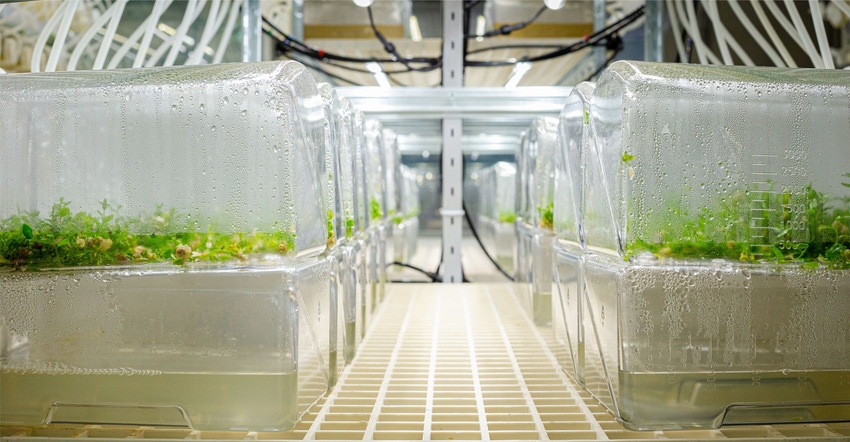February 1, 2022

The world of biological-based products is expanding, as startups and established companies explore new ways to control pests. Botanical Solution Inc., a startup with offices in Davis, Calif., is working to bring its unique approach to the biological market — but the source isn't a fungus or bacteria. The company uses botanical extracts from a plant native to Chile — Quillaja saponaria — also known as the soapbark tree.
Farm Progress has been tracking this startup in previous coverage. The company has been expanding into new markets beyond Chile into Mexico, and it has product under review at EPA as well. The product once sold as Botistrop has a new global brand, Quillibrium; and the company recently announced $6.1 million in Series A funding.
Syngenta has been a partner with BSI to market Botistrop in Chile — and now as Quillibrium with expansion into Peru. The botanical is effective against botrytis, a significant disease in high-value crops. Farm Progress talked recently with Gaston Salinas, CEO, BSI, about market expansion.
"We have extended our partnership with Syngenta and expanded into Mexico for this year," he says. "We are looking at the United States and will enter California initially. Our expectation is to be registered [in the U.S.] by the end of the year."
High-value crops to start
Salinas notes that Quillibrium will be marketed for use on high-value crops, including grapes and strawberries. The product works to stop botrytis and powdery mildew. "Those crops are our main focus, but we're also looking at almonds, pistachios and walnut to treat broad-spectrum diseases that affect those crops," he says.
Related: Plant-derived fungicide finds larger market
This botanical approach to disease control is different from using bacteria or fungi to control these crops. "We use conventional equipment to spray the product every 10 to 14 days, depending on the crop and target disease," Salinas explains. In high-value crops, multiple pesticide applications are key to quality and productivity management.
Salinas says the company is in trials in California, and Syngenta has been involved in testing the compatibility of Quillibrium with other applied products. "The product is technically a biochemical, according to EPA," Salinas says. "That allows us to take a different regulatory path. We're talking about plant material and plant extracts, which is different than other biologicals."
Funding helps
Moving a product from lab to the field requires significant investment. BSI's latest round of funding from Otter Capital — a firm that has invested in other ag-based startups in the past, including AgraQuest, which was later acquired by Bayer. "They know the talent around biologicals, which is key to our proprietary platform," Salinas says. "They know about the consistency and efficacy of the product."
He adds that future work will involve moving beyond California with credibility in the product.
BSI is using a proprietary tissue culture approach to propagate plant material that is refined into the finished product. The approach is highly efficient. Salinas explains a 1,000-square-meter facility in Chile has the capacity to serve Peru, Chile, Mexico and future demand in the United States. He notes, however, that as the business expands, production can be added where needed.
The rise of innovative biological products that work consistently are an area for farmers to watch, no matter where you farm. You can learn more about BSI at botanical-solution.com.
About the Author(s)
You May Also Like






